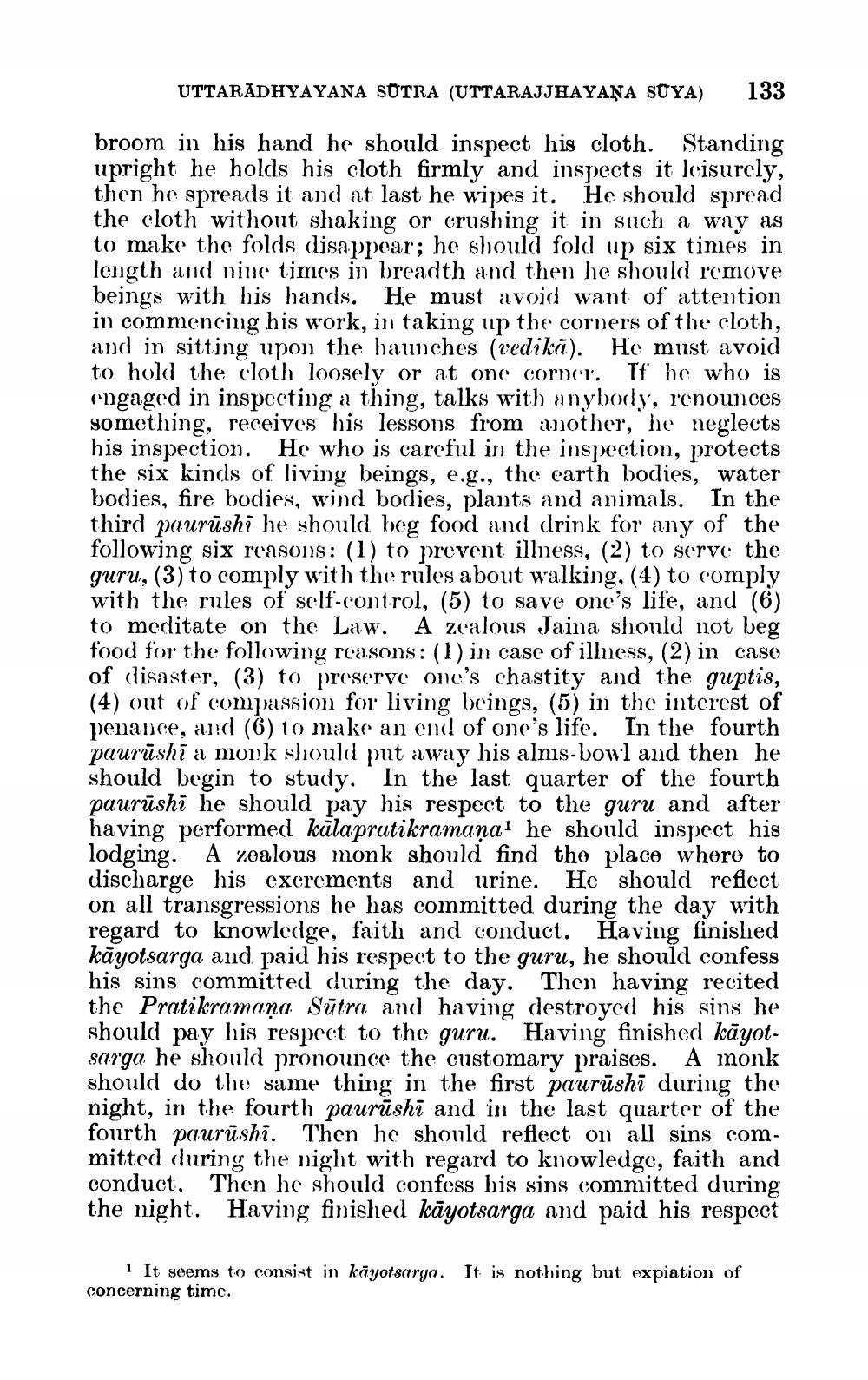________________
UTTARADHYAYANA SUTRA (UTTARAJJHAYAŅA SUYA)
133
broom in his hand he should inspect his cloth. Standing upright he holds his cloth firmly and inspects it leisurely, then he spreads it and at last he wipes it. He should spread the cloth without shaking or crushing it in such a way as to make the folds disappear; he should fold up six times in length and nine times in breadth and then he should remove beings with his hands. He must avoid want of attention in commencing his work, in taking up the corners of the cloth, and in sitting upon the baunches (vedikai). He must avoid to hold the cloth loosely or at one corner. If he who is engaged in inspecting a thing, talks with anybody, renounces something, receives his lessons from another, he neglects his inspection. He who is careful in the inspection, protects the six kinds of living beings, e.g., the earth bodies, water bodies, fire bodies, wind bodies, plants and animals. In the third paurūshi he should beg food and drink for any of the following six reasons: (1) to prevent illness, (2) to serve the guru, (3) to comply with the rules about walking, (4) to comply with the rules of self-control, (5) to save one's life, and (6) to meditate on the Law. A zealous Jaina should not beg food for the following reasons:(1) in case of illness, (2) in caso of disaster, (3) to preserve one's chastity and the guptis, (4) out of compassion for living beings, (5) in the interest of penance, and (6) to make an end of one's life. In the fourth paurūshi a monk should put away his alms-bowl and then he should begin to study. In the last quarter of the fourth paurūshi he should pay his respect to the guru and after having performed kālapratikramanal he should inspect his lodging. A zoalous monk should find tho place where to discharge his excrements and urine. He should reflect on all transgressions he has committed during the day with regard to knowledge, faith and conduct. Having finished kāyotsarga aud paid his respect to the guru, he should confess his sins committed during the day. Then having recited the Pratikramana Sūtra and having destroyed his sins he should pay his respect to the guru. Having finished kāyotsarga he should pronounce the customary praises. A monk should do the same thing in the first paurūshi during the night, in the fourth paurūshi and in the last quarter of the fourth paurūshi. Then he should reflect on all sins committed during the night with regard to knowledge, faith conduct. Then he should confess his sins committed during the night. Having finished kāyotsarga and paid his respect
1 It seems to consist in kayotsarya. It is nothing but expiation of concerning time,




